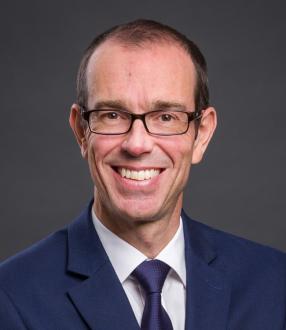Life Insurance Solutions and their Role in Estate & Legacy Planning for HNW Clients in Asia

Lee Sleight of Lombard International Assurance
Mar 20, 2023
A Hubbis Round Table Event Supported by Lombard International Assurance
Hubbis organised a private discussion with selected Asia-based wealth management market experts on February 15 in Hong Kong on the evolution of estate & legacy planning for wealthy clients in Asia, and the importance of life insurance solutions to such structuring. Attendees included a selection of decision-makers from amongst the private bank and independent wealth management industry, mostly based in Hong Kong, and including well-known specialists in estate & legacy planning. The two Lombard International Assurance hosts were Lee Sleight, Head of Business Development for Asia, and Danni Geng, Relationship Manager at the firm. Hubbis has summarised some of the group’s key insights, observations and nuggets of advice from what was a very lively and informative discussion.
These are some of the topics covered:
- What are the ‘new’ trends in legacy and estate planning?
- What are the ‘tools’ you use today and how is this changing?
- What are the most common concerns of HNW and UHNW clients and how are expectations evolving?
- Wealth and succession planning: enhance or reshape?
- How are you helping clients facilitate effective wealth transfer to the next generation?
- Is there a need for portable solutions as wealthy families become increasingly mobile?
- Finding the best advisory services and solutions – how do you maximise partnerships with the right specialists?
- What specific trends are we seeing from mainland Chinese clients?
- What can Hong Kong do to retain its competitive edge as a key wealth hub in Asia?
Key Insights & Observations
Estate & Legacy planning is core to the proposition for many wealth management leaders today
Whereas a decade or two ago, private banks and independent wealth management businesses (EAMs) paid only little attention to estate, succession and legacy planning for their clients and focused almost exclusively on investments, today such advice around robust planning has become more front and centre of their propositions. Is it a profit centre in itself today? Perhaps not, but it is increasingly considered essential to a more complete or holistic engagement with HNW and UHNW clients, as well as a portal to a broader relationship with the family and the next generations.
As one guest at a successful firm reported: “Planning is really a core part of what we do as a multifamily office and EAM. We have seen our US and European clients requiring more such advice and support and we are seeing very strong demand from families now in Asia, including a focus on succession, the next generations, retirement, tax, legacy, philanthropy, and so forth. It is now far less common to find clients who just want their money managed. Yes, planning advisory and support is labour intensive, and work on investments is much more profitable, but planning advisory is actually incredibly powerful in terms of relationships.”
They told guests how via planning support their firm had achieved considerable success adding families as clients and adding extended members and arms of those family clients. “Many of those conversations are really not about money, and more about legacy, solutions, helping set realisable goals, and having then some peace of mind.”
Is Hong Kong a good base today for wealth management and advisory? Yes, say some of the biggest in the business globally, hence the growth of family offices
A leading private banker from a global brand bank conceded that Hong Kong has had its share of troubles and reputational issues in recent years, but as China and Hong Kong reopen fully, their bank remains positive and they noted how most people they speak too are also highly optimistic about its future.
“A major topic currently is family offices, with the Hong Kong family office tax exemptions and incentives coming through soon,” they reported. “This will certainly provide Singapore with a lot more competition. Yes, Singapore has really taken the limelight in recent years, but as people see what Hong Kong has to offer they will see the advantages here, including the accessibility to China as a major plus for many families in the same way as it might be a big negative for other families. The narrative will change.”
They said their discussions over the next year are likely to be increasingly around family offices in Hong Kong. “And such discussions will also involve a lot more conversations around wealth and legacy planning here in Hong Kong,” they reported.
When working with the wealthier and more complex families, you need a multi-jurisdictional perspective today
A lawyer in attendance highlighted the increasingly global nature of very wealthy families, their assets, properties, and family members. He said that especially for the bigger families a multi-jurisdictional perspective, planning and structuring is increasingly valuable, or more realistically necessary.
Another guest agreed, noting that the families themselves are increasingly complex, and along with their global asset dispersion, this means highly sophisticated reporting and regulatory compliance.
“These days, there are increasingly difficult, even frustrating reporting regimes that are tiresome but a reality of life today,” they said. “The theme that we are seeing is therefore this increased level of external complexity juxtaposed with many families wanting simplicity and flexibility. The new Hong Kong family office tax exemption will really help in terms of sort of simplifying all this, families can achieve tax protection and substance here; I am therefore hopeful around these new developments.”
In a world of increasing complexity and specialisation, the role of the private banker and EAM is to guide clients towards optimal outcomes
A veteran private banker explained that their RMs and advisors are well capable of having the right conversations on planning with clients but agreed that the issues have become so complex and so complicated that they simply cannot handle the whole legacy discussion.
“In the old days, it used to be just a trust or BVI or both to solve these matters, but today you need to have a much more multidisciplinary approach, bringing in the experts from the ecosystem – the tax specialists, lawyers, trustees, asset managers, the insurance specialists, the investment migration expert and so forth. You need to work with a preferred ecosystem that will ensure the family attains its objectives safely.”
They added that in Asia the patriarch or founder view often holds the families together, and after he or she passes away, the families can all too often be at conflict over wealth and control.
“After the demise of the patriarch this can often lead to all kinds of family issues, but if you are careful to guide them earlier towards a better structure and process with all the stakeholders involved, you have a much higher quality and more robust end result.”
And they also said that in their view, many private bank RMs have a genuine interest in attaining the best possible solutions for their clients. “The majority of the banks, and I concede there are always exceptions, as in any field of endeavour, in general provide their clients with a genuine level of sincerity and objectivity.”
Another representative from a bank agreed, adding that they and their small team are judged not on revenues, but on the quality of their ‘conversations’ with private clients around all these issues on wealth planning, the family office setup, family governance issues. “We are not necessarily tied to the revenue and net new money of the client,” noting that today there are other metrics to value their roles. And another planning specialist from a global bank noted that objectivity was essential to their roles.
The family office as the hub for maintaining wealth, for robust planning and just as importantly, for family cohesiveness
The head of the family office advisory practice in Asia for a major global bank with a powerful presence in Asia explained that they are a strong believer in the family office to facilitate in astute planning and intergenerational wealth transfer.
Another guest agreed, adding that for control, coordination, for next generation involvement, for more transparency and better communication, the family office stands out as an excellent vehicle.
A guest from a leading boutique Swiss private bank said the family office allied to strong family governance was an ideal combination.
“Many clients in Asia are most concerned about the unity of the family, and long-term planning for their wealth, and making sure the family sustains itself, not so much financially as they are very wealthy, but in terms of communication and cohesiveness,” they explained.
They said the family office is really a platform which allows the family members to participate and contribute in different ways. It helps with coordination of the family businesses, the assets and investments, for ease of compliance, for family governance, and more generally for preserving the belief and culture of the family, as well as for philanthropy for some of the wealthier families. “We talk to clients from that angle rather than trying to push them in any specific direction,” they said.
Another expert added that the family office is also the ideal vehicle for nurturing the next generations and for enhancing their skills and gradually divesting control to them as the founders age and want to take more of a back seat.
“For the kind of work we do, and the care we provide to families, we consider it takes years to train people properly,” they said. “Our view is you need at least a 10-year runway to develop the next generation for your businesses and assets, to make sure they integrate into your culture, that they develop the skills they need.”
They said it was the same for their firm, and that they made a great effort to nurture the right skillsets internally to help manage their HNW and UHNW clients. “We cannot just hire bankers in and expect them to be able to help with these issues,” they said. “They have to understand the vision and your values. They must fit, to be part of who we are, the need to live and breathe the culture and the care for clients.”
The value of linking life insurance solutions to robust, astute estate and legacy planning and structures
A speaker turned to the appeals of PPLI as a key element for robust wealth structuring. They said PPLI is internationally recognised for trustees in most jurisdictions around the world, it can hold a wide variety of listed and private investments from bankable assets. It is available for clients as individuals or via entities. It works well with trusts, and it works well with offshore companies as well.
It is portable and helps ensure tax deferred and tax efficient distribution to beneficiaries in multiple jurisdictions, on other words wherever they might be at the time of the policyholder’s death. PPLI also provides liquidity at those difficult moments for families.
They said what is somewhat different about PPLI from other life solutions is the open architecture, allowing the existing relationships that the client may have with their banks, with family offices, and generally with their advisors to be maintained,” he explained. Assets are in custody with the clients’ bank and fully segregated from other accounts. The RMs do not lose their clients if they are recommending them to take up PPLI, in other words they can retain that AUM.
They told guests that PPLI combined with existing structures will thereby enhance them, and achieve a variety of other key objectives, including the tax efficient holding of those assets during the policy’s lifetime, and later the seamless transfer of those assets upon death, to nominated beneficiaries who can also be changed during the policy.
“If you are looking at how you can transfer wealth on to the next generations in an efficient and swift manner, and in the meanwhile hold those assets in a compliant and also portable structure, PPLI is a solution that people should be considering,” they stated. “It is also transparent as to the fee structure involved.”
Key Insights into Lombard International Assurance, PPLI and its Relevance for Asia
Lombard International Assurance was the exclusive sponsor of this discussion and represented by Lee Sleight as Head of Business Development for Asia, and responsible for designing tailored private wealth and succession planning solutions, working closely with Asia-focussed distribution partners for UHNW clients and their families that protect, preserve, and pass on their legacy to future generations. Hubbis spoke with Lee recently to hear his views on the appeals of PPLI and what he believes it is an ideal solution for clients in Asia.
Lee said there is significant rising interest in PPLI in Asia, noting that PPLI is well understood in Europe.
“I think Asia is following the European model,” he reported. “We are the largest provider of PPLI out of Luxembourg. Life insurance is incredibly widely accepted and evergreen.”
A globally accepted offering
He explained that these policies are widely accepted, widely understood, and they offer a host of benefits, including, as speakers at the event had highlighted, distinct advantages with regard to estate & succession planning.
“Interest in Asia is definitely expanding,” Lee added, “and we are confident we will see greater take-up ahead. Moreover, the wealth management industry is increasingly engaged with PPLI, with more advisors knocking on our doors to learn more.”
Gaining momentum in Asia
He explained that while in Europe PPLI is well established, it is far newer in Asia. “The wealth planning and structuring market here in Asia is also less evolved, so there is more work to be done to bring people and advisors up to speed. PPLI is an option for these clients, but this needs to be seen and understood in the context of the individuals, the families and the overall wealth and estate structuring.”
Lee also noted that the range and diversity of assets that can be housed within PPLI structures, are appealing to clients, and this has been proven over many years in Europe, where Lombard International Assurance has had significant success with PPLI. He added that it works well alongside trusts and is well recognised by leading trustees, who will often hire specialists for due diligence on alternative or less liquid assets that can be held within PPLI structures.
Bringing a wealth of experience to Asia
Lee has over 20 years of experience in the Wealth Assurance industry across Europe, Asia, and Latin America. Joining Lombard International Assurance in 2004, he successfully led the European Case Structuring Team, where he built a unique track record, working in partnership with advisors to global UHNW families to offer Private Placement Life Insurance (PPLI) solutions catering for their wealth and succession planning needs.
He is a member of the Society of Trust and Estate Practitioners (STEP). Born in the UK, Lee has lived in Germany since 2005 and worked in Luxembourg since 2001. A father of three, Lee is also an avid trail runner and triathlete.
A 360-degree perspective
Lee said that from his perspective, wealth management advisors and principals must look at the wider family situations of their private clients, the range of assets and jurisdictions, and the key objectives, in order to assemble viable solutions.
“We are working hard to disseminate greater appreciation of PPLI and how it works,” he said. “The wealth industry needs to understand also how the solutions that are out there can work together with PPLI. The wealth industry and intermediaries and the fiduciary services providers need to be able to discuss the pros and cons of solutions with their clients.”
Educating the Market
“In the pursuit of robust wealth planning outcomes, what we are all looking for is a solution that is comprehensive, covering most eventualities and that is nevertheless simple, easy to conclude and easy to understand,” he explained. “It should be tailored and adaptable to meet the needs and wishes of all clients and their family, which can also be updated as situations change, and which by its very flexible nature protects as far as reasonably possible against uncertainties ahead.”
Retaining clients
He said that one of the biggest opportunities that the wealth management industry faces is the global nature of clients, and how to support them as they live, work and then retire across the globe.
“And we need to remember that this may not be limited to the clients themselves,” he observed. “It will inevitably extend out to their wider family, as children study abroad, get jobs and often settle down in a different country to their parents. Quite often these changes are accidental, or the implications are not considered in the excitement of the move, and really only realised at a later date, at which point it is generally then we as advisors find out.”
He observed that bankers and other wealth management advisors want to maintain their existing relationships across borders. “They spend a lot of time building those relationships, and then want to maintain and extend those relationships,” he said. “As they know, it is a lot easier to retain existing clients than to gain new ones. And to retain them, you need to be able to help them amidst changing circumstances.”
Adaptability and flexibility
The result is that clients and advisors need to be in a position to adapt planning swiftly, with minimal change, discomfort and inconvenience. And in an ideal world, everyone needs to be ahead of the curve, helping to ensure the client's planning can be changed in anticipation of that move.
“What we therefore need is a solution that has a proven track record, is embedded in both tax and fiscal regulation internationally, meaning it is helpfully recognised in both civil and common law jurisdictions, and is therefore highly portable,” he stated. “The solutions need to work well across borders with minimal change, meaning that there is no need to restructure, sell assets at an inopportune moment or even collapse those structures.”
Clarity of mission
He said that in building a lasting legacy, the first step should be to draft and implement a clear succession plan to map out how wealth will be passed on in alignment with client’s wishes, whilst at the same time recognising that these plans may, in fact, probably change at some point in the future. “And as I said, you need to revisit any planning in place and check that it remains fit for purpose and consider what changes may be necessary.”
Ticking the right boxes
Lee concluded by stating that PPLI fits well as part of a holistic wealth planning strategy. “I should add that in the event of someone passing away, policy assets can be paid out smoothly and swiftly directly to the heirs (who need not be the legal heirs) removing the need to go through a painful probate process, potentially remotely in a different country.”

Head of Business Development, Asia at Lombard International Assurance

More from Lee Sleight, Lombard International Assurance
Latest Articles






